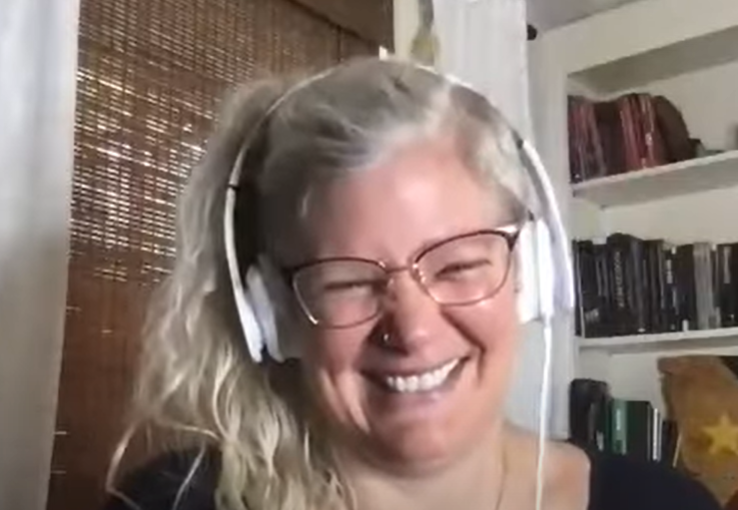Tag: Psychologist Philippines
Knowing Your Potential Mate
by Nathan Chua
I am writing this not to advocate for any external form of ritual bonding for couples. I have lately ended up telling my clients that neither am I a priest nor a pastor. I am not here to judge what their lives are and what they’re supposed to do or not. I am duty bound to respect anyone who comes to see me for their important questions about their lives. So it doesn’t matter if you’re monogamous or polyamorous, straight or non-straight, what ends up mattering in our work is if you are living your life according to your best hopes for your short existence.
Now let’s get on with the topic at hand. How many times have you ended up being in a long(er) term relationship with someone who turns out to be totally different from your own images of what a pair bond is supposed to be? Have you ever heard of people who have jumped from one abusive relationship to another? Here are some tips about knowing if you have someone worth considering in front of you:
Be Mindful, Not Blind:
It is understandable that you may have a shortlist of what you want to look for in a partner. This certainly provides greater probability of success than just random choice. Unfortunately, predicting how you and another human being will do in a close relationship is something that the shortlist will never be able to guarantee. What I am saying here is that people are unique and can hardly be summarized in a short checklist. No matter how long this list will be, not one person can match everything that you want.
Getting to know someone is pretty much like learning how to ride a bike, swim, or even walk! There is no instruction manual good enough or long enough to tell you how to do these activities. And so it is with relationships! You won’t really get to know a person thoroughly by just comparing them to a checklist of qualities. Why? Because all behavior happens in context. It’s easy to think about a person’s behavioral choices in a vacuum. We usually do not appreciate the contexts in which these behaviors happen and blindly follow rules that end up with well, blind choices. Your potential mate may be nice in a date, but what are they like in traffic or stressful situations?
There are certainly good reasons why we should trust our minds when it comes to fending off a virus or an infection. But trusting our logical minds to fend off the difficult feelings, thoughts, and memories that we experience in relationships, is a route towards possibly worse outcomes. I often use an example of how our problem-solving minds are an absolute gift. Mosquitoes are some of the worst threats to our health. Without our problem-solving minds, we would not learn to slap them dead on our arms or invent a lotion to repel them. We are quick to apply the same kind of problem-solving skill to our feelings and thoughts. The bad news is there is no slap strong enough to keep your feelings away, nor is there an off lotion version that works to remove our unpleasant internal experiences. If there was, please tell me. Unless it’s some sort of drug or substance that sedates you, then feel free to reach me so I can take these substances myself. I don’t think living a life numbed out or sedated is what I bargained for.
Why is this worth mentioning? Well, in a relationship your logical, sensical mind will tell you that your partner should never arouse any difficult feelings. So, good luck with that if you aren’t mindful enough to notice the rule inside your head. Relationships come with feelings. In fact, you wouldn’t be in a relationship if it meant you were just going to be half awake all the time. You’re there to feel something moving and purposeful. You’re not there for a stale lifeless existence! So be mindful of what you see in your partner in different situations. See if you share the same hopes and cherished values.
Keep in Touch with your Feelings:
As you spend time with a person, you would probably get a sense of what it feels like to be in their company. Do you feel a sense of loneliness? Maybe you are with someone who is preoccupied with themselves; they hardly hear what you have to contribute. Do you feel incensed or angered that this person can’t make a commitment to arrive on time or do as they promise to do? Maybe this person is lacking in empathy and consideration.
If you are one of those who jump from one abusive relationship to another, then maybe it’s time for you to step back and listen to your feelings. Maybe you are so tunnel-visioned into thinking what story your mind is creating about your long term relationship. Maybe it’s time to wake up and check your feelings when you are with this person.
I remember a story of the character of Lt. Dan in the movie Forrest Gump. He, like all of us, created a story of his fate after the Vietnam war. He wanted to die in war just like his war hero ancestors. Just as you and I know, sometimes life happens however. In his case, Gump happened…to save him from his inevitable passing as a war hero. Unable to reconcile his experience with the story his mind wanted to create, he lived his life purposefully wasting his time fighting the memory or thoughts of an opportunity lost with the amputated legs serving as a constant reminder of a missed opportunity to fulfill his mind’s vision of a destiny. In the end, he realized that he can still be the hero unto himself; the one who harbored a hope of living his life without his amputated legs but with much purpose as just Dan, the man, who may not be the war hero he dreamt of becoming, but a person of worth nonetheless.
Just as Lt. Dan started to let go of his grand story of what he wants about his life, maybe you also can hold these love stories lightly, and see if this person is worth your time and love.
Letting Go to Gain Control
by Nathan Chua
The School Play:
I remember some of the most fun I had back in my school days, was when we had to do role plays. Not just any other role play, but actually create a skit as a medium to learn. There’s also very little pressure as these were done in front of a class only and not a major production wherein a whole auditorium of students were there to watch.
My Louis Vuitton Story:
I once entered an LV store in Metro Manila, and scoured through some of the merchandise. As I was doing that, I noticed the attentiveness of the sales people as there were hardly any people around who were shopping. I looked at some items that I thought were very impressive and their price tags. As I was on my way out, I said, “I love your products but I can’t afford any of them!”
Walking around with plastic buckets:
Have you ever had a time when you and your friends went out and knew that you were all going to do something rather unconventional and at times downright embarrassing? Of course, always in the spirit of good clean fun. Well, I am one of those who has gone out with a group of my high school male friends wearing clothes that should only belong to the home, carrying plastic buckets and brooms, and going inside a mall to deposit the stuff we had at the front of the department store where people usually leave their shopping items.
Ordering a siopao at Mcdo:
When I am in a fast food restaurant, I sometimes order something obviously unserious at the counter. For what reason? Nothing just for fun! As the heading for this paragraph tells you, I have in the past ordered the Jollibee Chicken Joy at a McDonald’s restaurant!
Which leads me to how I got to think about writing something like this for all of you. When I did those I did not know anything about contextual behavioral science. About a couple of weeks ago, I found an online audio resource created by Steven Hayes, the developer of ACT (Acceptance and Commitment Therapy) and RFT (Relational Frame Theory). He shared one of the ways we can pop that bubble or illusion that says we do what we think, by doing exactly what I had been doing sporadically since oh, high school? I hadn’t realized doing these crazy things weren’t just fun, they were also about letting go of some of the rules that we tend to sell our lives to! What I was doing was letting go of the rules that shackled me from pursuing what would be psychologically risky, but at the same time liberating. I can choose to be how I want to be at any given moment!
This article reminds me of my father. He was a good but also misunderstood man. Believe me, I was one of those who did. He had always been a businessman who inherited a family business. Through decades of working in the business, he could not manage to make a sizable profit. He found himself mired in debt until the day he passed. There was one skill that we, his kids, thought that could have made him a world-class cartoonist. We saw some of his drawings of caricatures of his friends with a pen! His every line had a precision that he didn’t need a pencil to make his initial sketch. Awesome talent that was never discovered nor shared with more people because he thought he couldn’t.
Are you living with can’ts, shoulds, musts in your life? Yeah they sure feel safe, but do they make you feel alive? Doing what your mind tells you you can’t, is a part of the exercise towards breaking that bubble. That bubble that says you can’t get out of that family business that is so comfortably limiting. That bubble that says you can’t do this or that. Don’t get me wrong, it is not my intention to tell you that anyone can be anything. We all do have limits. The question is, have you tested the limits and seen how liberating it can be on that side where your mind says no, you can’t. And maybe you can just, by doing these silly things for nothing, be you, and no one else but you!
Nathaniel Chua’s First International Talk Now on the One Life Only YouTube Channel!
Listen to this on Spotify:
Interview with Julius and Tintin!
Had an interesting conversation with Julius Babao and Christine Bersola-Babao, October 25, 2023!
Watch it on YouTube below:
Another Two Shrinks Over Drinks! With Dr. Emily Sandoz!
If you prefer to listen to this video interview, you can click the play button below:
Two MORE Shrinks Over Drinks! Video! Part 1
This is the second offering of our Two Shrinks Over Drinks series. This time we have a friend, who’s also a doctor and co-author of a book entitled, “Mastering the Clinical Conversation: Language as Intervention.”
Here you get another chance to eavesdrop on two MORE shrinks caught in a casual conversation. If you have ever wondered what it is like to listen to a couple of psychologists/counselors talk over a drink, well, here’s your chance!
We talk about a myriad of topics and it took two hours to do! In fact, this could have been topics that are fit for a whole day’s chatter!
So this will be the first part wherein we talk about:
– Dr. Villatte’s ACT story
– Philosophical framework in counseling or psychotherapy
– What Skinner referred to when he wrote about a pre-scientific way of explaining human behavior
– What we mean by an approach that has precision, depth, and scope; how this can affect the way therapists choose their approach or models of therapy, and how this can assist clients make decisions on the kind of therapy they want
Are you depressed? Video!
Are you depressed?

by Nathan Chua
No, you’re not. You are called by a name, and I don’t think your parents or guardians would name you, “Depressed!” Yes, this is kind of a play on words, but it can also serve as a reminder to you that your depression doesn’t define you. I have met a good number of clients who have come to me saying that they have been diagnosed with major depression and subsequently medicated for something they are supposed to have that causes the depression…some sort of brain disease. It no longer surprises me when clients come to me and say that they had a chat with their provider for 15 minutes and voila, they are labeled as being stricken by something that is called major depressive disorder or MDD! Sad to say you’re broken and you need some fixin’!
These conclusions are made in the service of a manual that says someone has a problem with depression when it lasts for a couple of weeks or more, plus a few other criteria listed. Most people who get such a diagnosis often end up feeling like they have very little control over their choices regarding how they want to spend their time. Much of their time from thereon will be focused entirely on getting rid of this depression. They begin to adjust their lives and expectations about their lives and their relationships around a diagnosis. People have to be careful about my feelings. They shouldn’t say anything that can trigger my depression or sense of self-worth. All of a sudden a mask is worn throughout their remaining existence.
A few words about our sadness:
I have recently shared this thought experiment about our sad feelings. It speaks about how understandable our negative feelings are. If you were in a funeral wake to visit the friends and loved ones of the departed, wouldn’t you be surprised if anyone came in without at least a tinge of sadness in their face? If you lost someone you cared for, would you think you’re abnormal for feeling sad? Wouldn’t you once in a while even after years following the death of a loved one, still feel a sadness that comes with a reminder of the person who once meant so much to you? Wouldn’t that be about just being a person who has feelings? And yet we have a system or a culture that says you only have a couple of weeks to get over your sadness.
The loop:
I remember an expert sharing that depression as we interpret it today, is not about the presence of sadness, but the unwillingness to feel sadness. The loop happens when you and I try to get rid of our feelings of sadness. This can come in many different forms. We may try to distract ourselves, opt out of activities we enjoy, ruminate about the guilt and the what ifs, and some of us even take substances. The sad news is unless you have a major brain injury or you are close to that age when you get hit by Alzheimer’s, you will experience sadness sooner or later. No amount of avoiding can help you on your way to being unable to feel. Take it from me, there are times I wake up feeling sad for no particular reason at all. That’s just the case about feelings. They visit us once in a while and they come and go of their own accord.
In short, the loop kind of looks like this, you don’t only feel sad, but also feel sad that you are sad.
It’s not what you are, it’s something you have:
You are not a walking depression. You can just observe. Take a full day without any medication and see if you will feel sad 24 hours non stop. Chances are you will find that your sadness only visits you in spurts. And when it is a longer spurt, chances are you are trying to suppress it. The problem with that strategy is that the more you try to forget about your sadness, the more you remember. Because trying to forget something only reminds you of what you have to forget!
The meaning behind the sadness:
Finally, this article won’t be complete without some kind of redemption. If our sadness were meaningless then I would be first to recommend that all of us should find ways to escape it. For example, if you were being physically or verbally abused by a partner or a guardian, this is needless pain that all of us can and should avoid. But the kind of sadness I speak about here does stand for something. Our sadness means we have lost something or someone of great value to us. We have sad feelings for a reason. We are sad for the loss of a loved one because…we loved them! If our sadness stood for something as life-changing and powerful as love, then why should we be ashamed of it?
I remember an author and psychologist mention that we have tears come out of our eyes because they were meant to be seen. I often say this to my clients, your tears today tell me something about you that any form of running away from or medicating your way out of your sadness cannot. They tell me something about you that makes me feel connected to you. You’re just as human as I am.
So next time you lose someone or something that matters to you, take a moment and look at the other side of the coin. This moment is precious because your sad feelings tell you you have lost someone precious. And for you to feel the pain of the loss, is the essence of why it is both difficult and a privilege to be part of the human species.
Your Everyday Wedding Vows
by Nathan Chua

“…for better, for worse, for richer, for poorer, in sickness and in health, to love and to cherish…”
This is for all the June brides and grooms out there!
When we hear this vow at wedding ceremonies, some of us can’t help but sense the daunting task ahead for the couple. However, what’s lost in these words involves one of the main reasons why couples don’t end up fulfilling these promises: context or changes in the couple’s contexts. Many marriages end not in particularly distressing times. I don’t have the data on this, but just by my experience in working with couples, the best of times do not shield a relationship from conflicts that may lead to separation or an unhappy co-existence.
Some changes in context come in the form of challenges to their dreams of what constitutes a happy marriage, or the rules that they thought would be followed faithfully. For better, for worse, for richer, for poorer, in sickness and in health, all describe a context wherein couples commit to standing their ground and being with each other in the most trying times. These are changes in context that are descriptive of major crises that heighten the solemnity of the event. Perhaps few couples realize that the moments when there are no crises can also set their course. Maybe an in-law is coming for an unwanted visit, a child is having trouble at school, a car breaks down and a daily routine drive is disrupted. Mundane as they seem, couples who are different, will want to handle these situations differently. Ergo, we hear one of the most perplexing yet tragic complaints from couples. Their fights seem to come from nowhere. Trivial matters become issues that make or break the relationship.
We all operate differently depending on the context. I know I write better when I am in a secluded, well-lit, and quiet place. You may work better when you hear white noise from your favorite mini-component stereo system. Can you imagine how a young couple sharing a small space has to deal with the potential conflict in the context of important deadlines? In other words, there is a confluence of stressful events.
Let’s take another example of a young professional who came to like a partner who was highly responsible and hardworking as they were dating. The eventual boyfriend who she ends up marrying, was very prompt on their dates but could only devote one night a week for a date. She liked that about him as her previous boyfriend was usually just hanging around her, sleeping on the couch and occasionally, shooting drugs. In the dating context, this new guy was an oasis. That context however, changes when they begin to chart their course as a married couple. All of a sudden, that once a week date feels like a concession. The boyfriend and now husband is not addicted to drugs but addicted to work! It’s now the couch surfing boyfriend that’s the oasis. Well, at least he was present most of the time. Another example is a partner you married or committed to because he was very close and loving to his family. I remember some sayings that mothers would usually advise their daughters that however their boyfriends treat their mothers, is the way they can expect to be treated as wives. In fact, your boyfriend was so close to his mom and family, he wanted you to all live in one place. You know where this is going.
So here’s my tip for all of you June brides (or grooms) out there. Be aware that any positive quality about anything, which includes your fiance (fiancee), has a flipside not a darkside. Take social media for instance. They have a flipside depending on usage. Your partner’s most likable qualities have a flipside depending on where you are in your matrimonial odyssey together. To put it simply, not all qualities are likable in all contexts. The trick is to be aware of this and see how you can handle your differences effectively. Remember that wedding vow represents not just your contexts in crises situations, but also your everyday ones. So be more conscious of your everyday wedding vows to avert self-inflicted crises.



